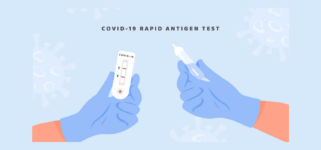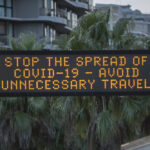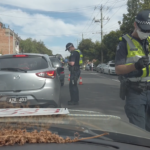It is Now Compulsory to Report Positive Rapid Antigen Tests in NSW

From 12 January 2022, the new Covid-19 testing regime is in place across New South Wales – moving away from PCR (clinic) testing to Rapid-Antigen Tests (RATs) which can be done at home.
Residents who test positive for Covid-19 are now required to report this through the ServiceNSW App as soon as possible.
The Government insists that mandatory reporting is not just about ensuring case number data is collected, but also that it will ensure anyone who tests positive can be linked to appropriate health services in their local area.
Failing to report can result in a $1,000 fine
It’s a significant departure from the past two years of government pandemic management, but not so far that people are finally being trusted to do the right thing.
Failing to record a positive test result will result in a $1,000 fine – adding to fines which have become a significant source of revenue for the NSW Government throughout the pandemic.
Anyone who has tested positive to Covid-19 since January 1, even if they have since recovered, can now send their results via the app. Fines will come into force on January 19, 2022.
Most jurisdictions have now moved to RATs, with the exception of the ACT and Western Australia. Victoria’s move to a system similar to the one NSW has just put into place resulted in an almost immediate overload of the Government’s system. There are assurances from the NSW Government that the NSW Services App will cope with demand.
Scarcity of testing kits is a big problem
Of course, the other current problem with the move to RAT testing is that testing kits are in exceptionally low supply – not just in New South Wales, but across the country.
The lack of availability of testing kits is being blamed as one of the reasons our supermarket shelves are virtually empty.
While there are many people who’ve contracted Covid-19 and are off work sick and isolating, close contacts of these people cannot return to work without a negative test.
The issue is affecting the entire supply and distribution chain.
It’s possible the staff shortage could lead businesses, where there are no government mandates in place, to reconsider their workplace vaccination policies in order to widen their recruitment pool.
Health experts have advised that workers in food and grocery supply should be able to return to work even if they are a close contact, if they are asymptomatic and test negative.
However, the supermarkets and retailers are waiting on a national decision to be handed down by Scott Morrison on exactly what mechanisms can be put in place to assist the crisis.
NSW Health self-isolation requirements
Currently, there are significant penalties in NSW for failing to self-isolate when you have been required to do so.
If you have tested positive to Covid-10, you must self-isolate for seven days. Commencing on the day of testing. The current guidelines state that unless otherwise advised a person may leave isolation after seven days without formal notification or a further test.
Also under the current public health regulations, lose contacts, such as someone you live with, or visit regularly, or those working or living in settings where NSW Health has determined there to be a high level of transmission must isolate for seven days and conduct a RAT test.
All other contacts should monitor for symptoms and if they develop, undertake a test.
Big fines for public health breaches
Failing to comply with obligations to self-isolate if you are diagnosed with Covid-19 including staying at home or in hospital, as determined by a doctor, nurse or paramedic can result in a fine of $5,000.
The same fine applies to close contacts who fail to self isolate as required.
There are also calls for RAT tests to be supplied much more cheaply and in bulk now that people will need to stock them as a regular household item.
Australia battles its biggest outbreak to date, new research suggests that Coronavirus loses 90% of its ability to infect us within 20 minutes of becoming airborne. Most of the loss in potency to infect occurs within the first five minutes.
Researchers at the University of Bristol, in the UK, developed a special apparatus to simulate the exhalation process.
The findings emphasise what we were originally advised about Covid-19 with regard to short-range transmission, highlighting the fact that physical distancing and mask-wearing likely are to be the most effective means of preventing transmission and cross-infection.
The peak of the current outbreak is expected to come at the end of January, and for now, Premiere Domenic Perrottet is urging everyone to simply “push through”.
As yet, no decision has been made regarding whether the start to the school year will be delayed (as it has been in Queensland). Discussions are still underway.







